When it comes to digital audio, there are several different file formats to choose from. Two of the most commonly used and popular formats are M4A vs MP3. Both M4A and MP3 are widely used for storing and playing digital music and other audio content. However, there are some key differences between the two formats that you should be aware of before deciding which one to use.
In this article, we will take a closer look at M4A vs MP3, comparing their features, benefits, and drawbacks, to help you make an informed decision. Also, here is a perfect format converter that we must introduce to you.
Contents: Part 1. A Comparison Between M4A Vs MP3Part 2. M4A Vs MP3: Which Format Should You Use?Part 3. Bonus Tips: Convert M4A to MP3 or Vice VersaPart 4. Conclusion
Part 1. A Comparison Between M4A Vs MP3
M4A is a file format for storing audio data, similar to MP3 and other audio file formats. It is a part of the MPEG-4 standard and is widely used for storing and playing digital music and other audio content. M4A files are typically compressed using the Advanced Audio Coding (AAC) codec, which is a more advanced and efficient compression method than the one used by MP3 files. As a result, M4A files generally offer better audio quality and smaller file sizes than MP3 files.
M4A stands for MPEG-4 Audio and is an audio file format developed by Apple Inc. It was first introduced in 2004 as the successor to the MP3 format. M4A is based on the MPEG-4 Part 14 standard, which is the same standard used for the MP4 video format. This means that M4A files can be used to store not only audio data but also video and other types of multimedia. However, in practice, M4A files are mainly used to store audio data.
M4A files are also used to store audio tracks that accompany video files in the MP4 format. This is why they are often referred to as "AAC audio files" as well. Additionally, M4A files can store additional information, such as lyrics, images, and chapters, which makes them more suitable for audiobooks and podcasts.
In M4A vs MP3, MP3 is actually a digital audio coding format. It was first developed in the late 1980s by a team at the Fraunhofer Institute in Germany, and the first MP3 files were created in the early 1990s. The format was designed as a way to compress audio files so that they could be stored and transmitted more quickly, without sacrificing too much sound quality.
MP3 quickly became popular for use on the internet, as it allowed music to be shared and downloaded easily. It also became the de facto standard for digital music players, such as the iPod. Today, MP3 is still widely used, although newer formats, such as AAC and FLAC, have also gained popularity.
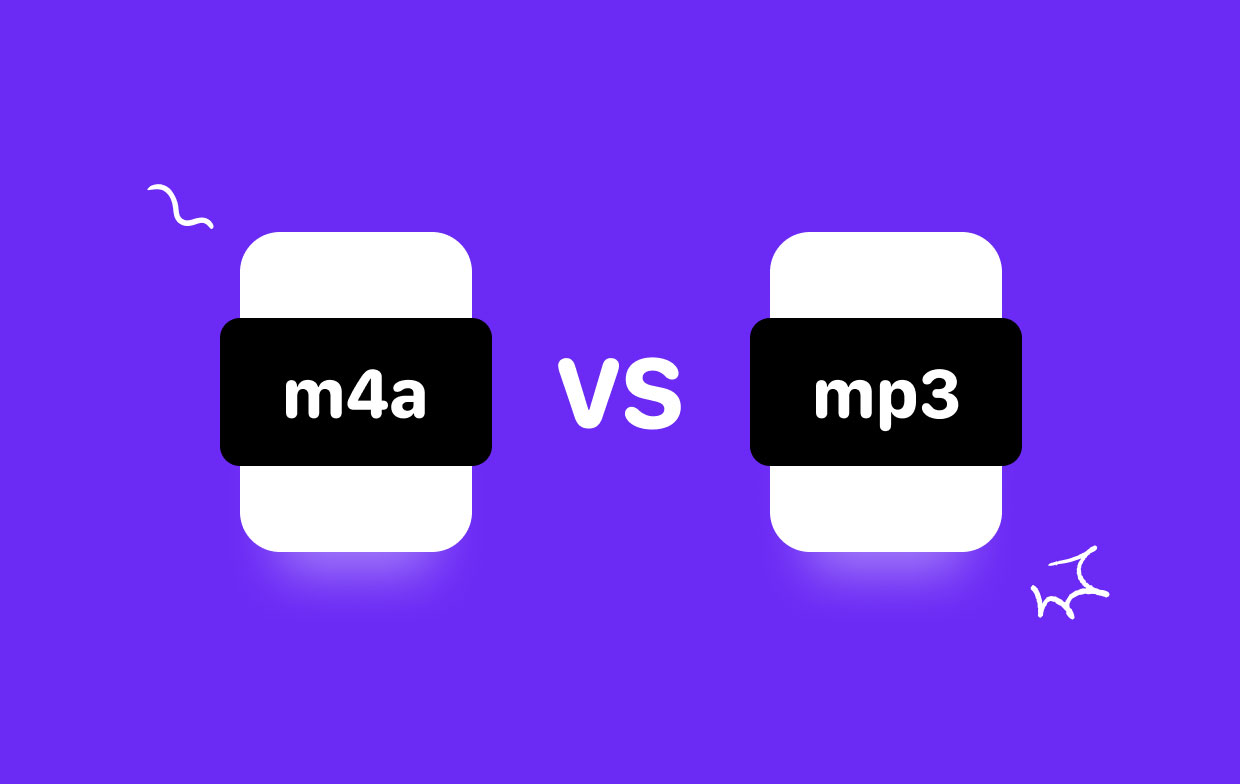
M4A vs MP3 are both digital audio file formats, but they have some differences.
- Compression: MP3 is a lossy compression format, meaning that some of the original audio data is lost during the compression process. M4A, on the other hand, is a lossless or a lossy compression format, meaning that the audio quality is retained and the file size is smaller than lossless.
- File size: Because of the lossy compression, MP3 files are generally smaller in file size compared to M4A files.
- Compatibility: MP3 is more widely compatible with a variety of devices and software players, while M4A is mostly associated with Apple products and may not actually be compatible with some non-Apple devices.
- Audio quality: M4A files, especially lossless, have better audio quality compared to MP3.
In summary, MP3 is a more widely compatible format with smaller file sizes but lower audio quality, while M4A is a format that is associated with Apple products with better audio quality but larger sizes of files.
Part 2. M4A Vs MP3: Which Format Should You Use?
Tool 01. Pros And Cons Of MP3
MP3 has several advantages and disadvantages as a digital audio file format:
Advantages:
- Widely compatible: MP3 is a well-established and widely-used format, so it is compatible with a wide variety of devices and software players.
- Small file size: MP3 uses lossy compression, which results in smaller file sizes compared to lossless formats like WAV or FLAC.
- Popularity: MP3 is the most popular format for digital audio, so it is easy to find and download music in this format.
- Lossy compression: Because MP3 uses lossy compression, some of the original audio data is lost during compression technologies. This can result in lower audio quality compared to lossless formats.
- Quality loss: The quality of an MP3 file can also be affected by factors such as the bit rate at which it was encoded, which can vary depending on the source file and encoding settings.
- Limited dynamic range: In M4A vs MP3, The MP3 format has a limited dynamic range which results in less ability to capture the audio nuances of a recording.
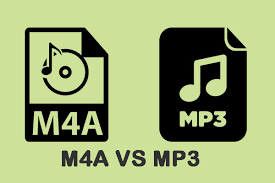
Tool 02. Pros And Cons Of M4A
M4A is, in essence, a specific digital audio file format with several advantages and disadvantages:
Advantages:
- Lossless or lossy compression: M4A is a format that can be lossless or lossy. Lossless M4A files retain all the audio data from the source, resulting in higher-quality audio compared to lossy formats like MP3.
- Smaller file size: Even in lossless format, M4A files are smaller in file size compared to other lossless formats like WAV or FLAC.
- Better audio quality: Lossless M4A files have better audio quality than lossy formats like MP3.
Disadvantages:
- Compatibility: In M4A vs MP3, M4A is mainly associated with Apple products and may actually not be compatible with some non-Apple devices.
- Limited use: M4A is not as widely used as MP3, so it may be harder to find and download music in this format.
- Not all players support lossless M4A: Some players only support the lossy version of M4A, which again results in lower audio quality.
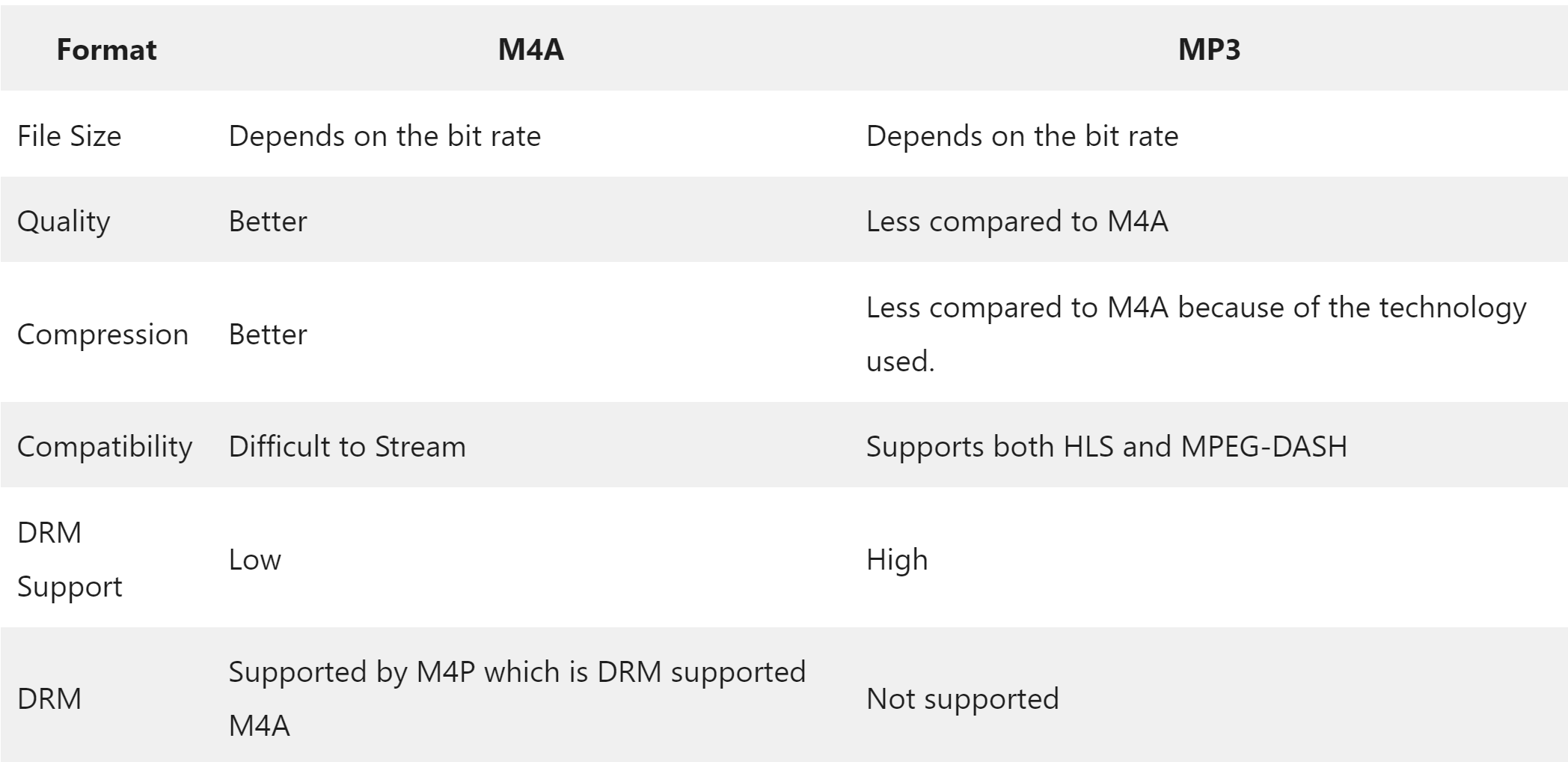
Tool 03. How To Choose Between M4A Vs MP3
When choosing between M4A Vs MP3, there are several factors to consider:
- Audio quality: If audio quality is a priority, M4A (lossless) is the better option, as it retains all the audio data from the source. However, if you're looking to save space or bandwidth, then MP3 is a good option as it uses lossy compression and is smaller in file size.
- Compatibility: If you primarily use Apple products, M4A is a good choice as it is mainly associated with Apple products. However, if you use a variety of devices and platforms, MP3 is a more widely compatible format.
- File size: M4A files are generally larger in file size than MP3 files. If you're looking to save space on your device, then MP3 is a good option.
- Availability: MP3 is a more widely used format, so it is easy to find and download music in this format. If you're looking for specific songs or albums that may literally not be available in M4A, then MP3 is a better option.
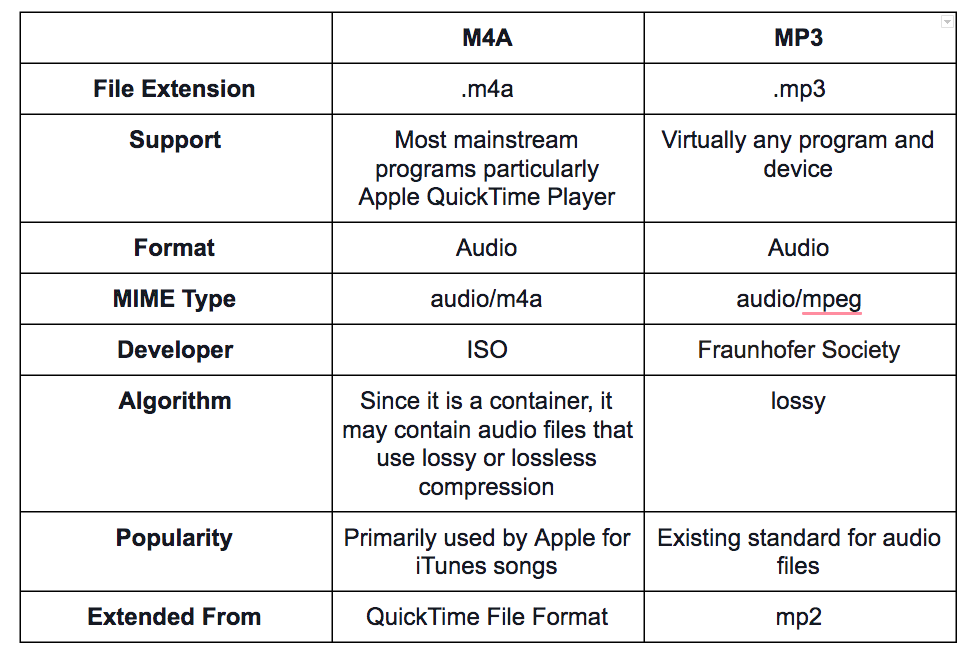
Ultimately, the choice between M4A vs MP3 will depend on your specific needs and priorities. If you are looking for the best audio quality and you are using mostly Apple devices, then you should go with M4A (lossless). But if you prioritize compatibility and file size, then MP3 is a good choice.
Part 3. Bonus Tips: Convert M4A to MP3 or Vice Versa
iMyMac Video Converter is a tool that can be used to convert audio files between different formats, such as M4A to MP3. Here are a few additional features of iMyMac Video Converter, the best converter for M4A vs MP3:
- Compatible with various devices: iMyMac Video Converter can convert files to formats that are compatible with various devices such as iPhones, iPad, Samsung, LG, HTC, Sony, and more.
- Edit video files: iMyMac Video Converter also allows you to edit video files before converting them. You can trim, crop, merge, and add effects to the video.
- Batch conversion: You can add multiple files to convert them in batch, which can save you time if you have several files to convert.
- High conversion speed: iMyMac Video Converter uses advanced technology to ensure fast conversion speeds.
- Support different languages: The software can support multiple languages including English, German, French, Italian, Spanish, Japanese, and more.
- User-friendly interface: The software has a simple and user-friendly interface that makes it easy to use for people of all skill levels.
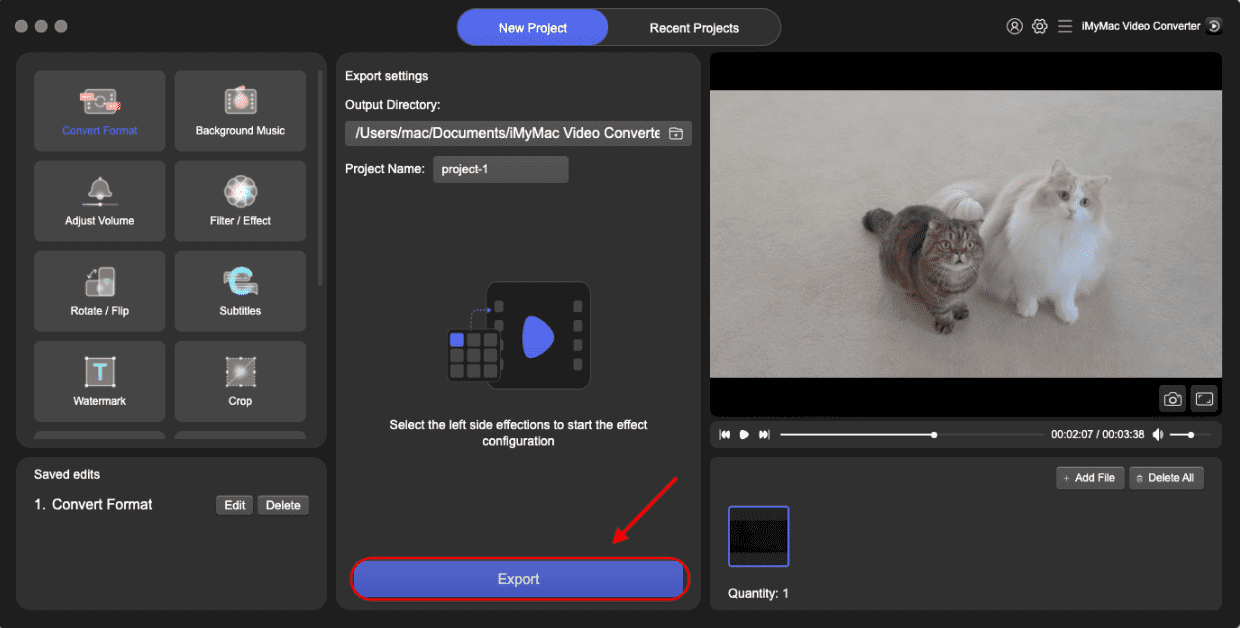
Part 4. Conclusion
In conclusion, M4A vs MP3 are both popular audio file formats that have their own advantages and disadvantages.
MP3 is a widely used format that is compatible with a wide variety of devices and platforms. It uses lossy compression, which results in smaller file sizes but also reduces audio quality. It is a great option if you want to save space or bandwidth and have a wide range of devices and platforms.
M4A, on the other hand, is mainly associated with Apple products. It uses lossless compression, which means that it retains all the audio data from the source, resulting in higher quality in terms of audio. But it also results in larger sizes of files. If you're looking for the best audio quality and you are using mostly Apple devices, then you should go with M4A (lossless).
In case you want to convert between M4A vs MP3, you can use iMyMac Video Converter to accomplish this task. It is a comprehensive tool that can convert various types of audio and video files into different formats. The software is user-friendly and has a high conversion speed. It also supports batch conversion and some video editing features. Grab the tool today!



